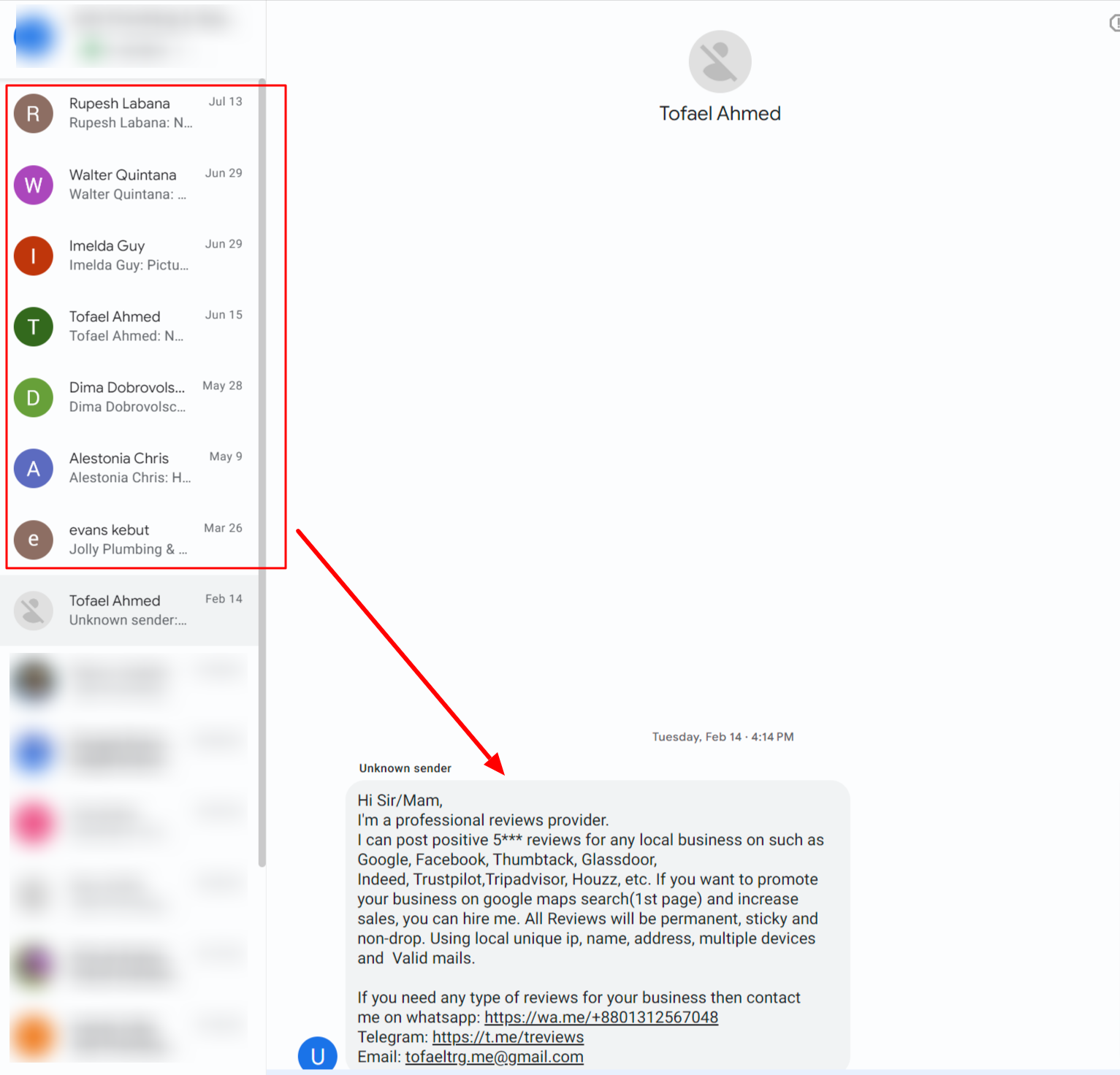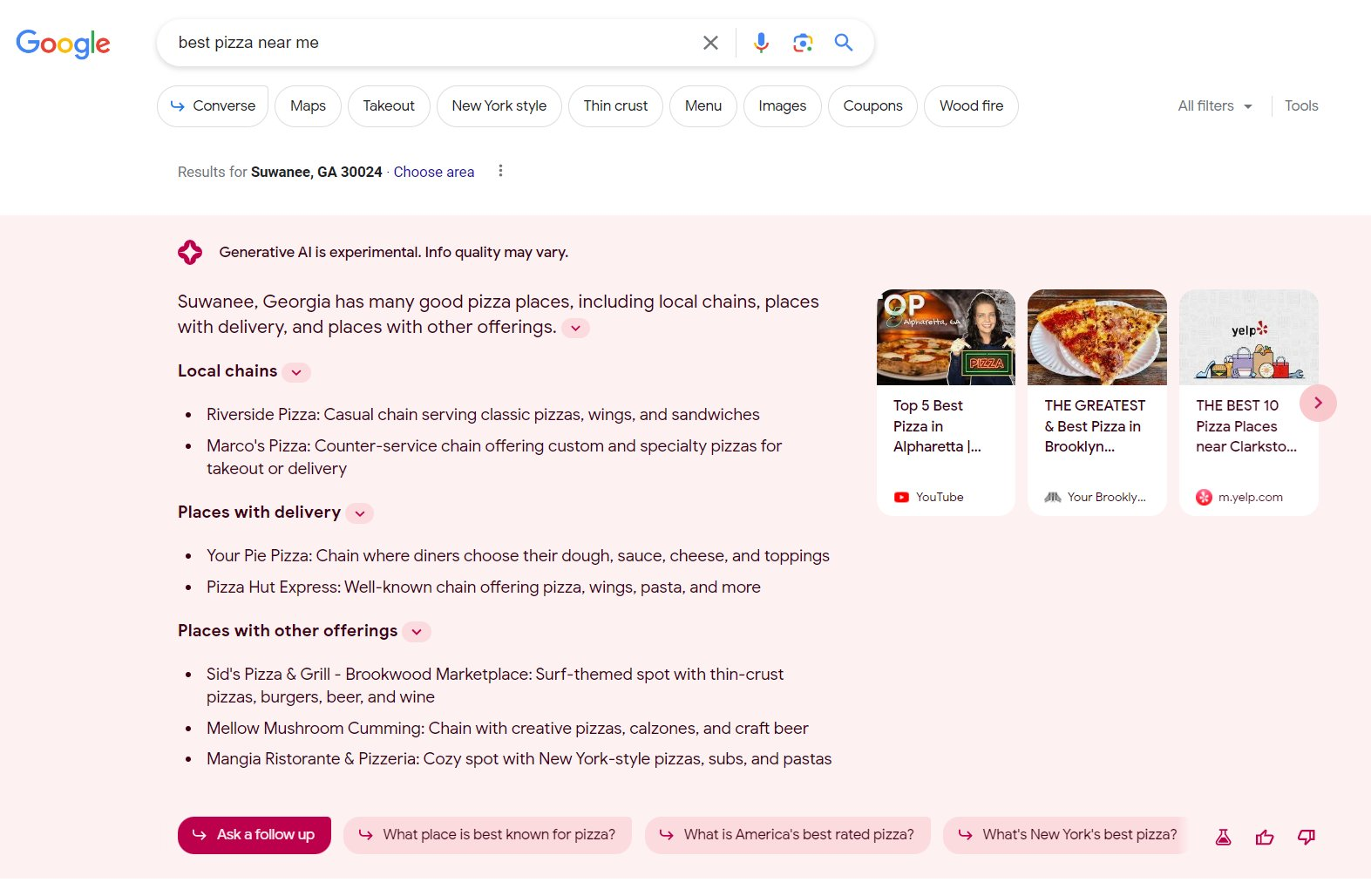What Are AI Agents? And Why Are They Critical to Local Marketing Success?
Local Memo: A Majority of Gen Z Women Prefer TikTok for Search
Local Memo: A Majority of Gen Z Women Prefer TikTok for Search
In this week’s post, learn about the search preferences of Gen Z women; Meta’s guidelines to AI for holiday marketing; the lack of consequences for posting fake reviews on Google; two Google algorithm updates; a new requirement to disclose AI in campaign ads; the fundamentals of semantic SEO; and the disappearance of local packs from SGE.
A Majority of Gen Z Women Prefer TikTok for Search
The results of a new survey of female college undergrads from Her Campus Media suggest that a sea change in consumer preferences is underway, with 51% of respondents saying they prefer TikTok to Google for search. Moreover, some 72% of respondents say they’ve purchased a product after discovering it on TikTok. The three top reasons for TikTok’s popularity in search are the video format of results (cited by 69% of respondents); more relatable answers (cited by 65%); and personalized answers (cited by 47%).
Notably, 61% of respondents said that they trust brands and influencers more than family and friends when it comes to product recommendations, a reversal from traditional reliance on word of mouth and online reviews from peers. TikTok is the most popular source of such recommendations, with 76% of respondents saying they prefer TikTok compared to just 16% who prefer Instagram. However, 95% said they log in to Instagram every day, compared to just 80% for TikTok.
Meta Offers Guide to Leveraging AI for the Holidays
Meta is announcing that this year we’ll have the “first ever AI-powered holiday season,” and offering a new guide to businesses for leveraging AI in their holiday marketing efforts. Targeted to SMBs, Meta’s guide is accompanied by a webinar series that will help businesses understand how to maximize and measure the performance of holiday campaigns. Primarily, the company is promoting Meta Advantage, its suite of AI-powered advertising tools, and claims that “nearly all” Meta advertisers are currently utilizing at least one AI-powered ad product. These include AI-managed shopping campaigns, automated enhancements to ad collateral, and automated audience targeting.
Meta also encourages advertisers to experiment with generative AI tools in its AI Sandbox including Outcropping, Background Generation, and Text Variation.
Lack of Consequences for Fake Reviews on Google
A post from Joy Hawkins notes that despite Google’s efforts to fight fake and spammy reviews, businesses are still being inundated with offers to sell them positive reviews, often delivered via the Messages feature in Google Business Profiles. As to the ongoing popularity of buying fake reviews, Hawkins cites an FTC report stating that as many as 25% of the reviews for low-quality businesses on Google appear to be fake. She then outlines the case study of a service-based business in Canada with multiple locations that was reported by users three times for buying fake reviews. Each time, Google removed some of the fake reviews, only to have the business go and buy more. Hawkins suggests that Google should post a notice (like Yelp does) or otherwise more severely penalize such repeat offenders.

Offers to sell fake reviews delivered via GBP Messages, courtesy Joy Hawkins
Google Completes August Core Update, Rolls Out Language Matching Update
Google’s August core algorithm update officially completed its rollout on September 7, according to announcements from the company. The total duration of the rollout, which began on August 22, was 16 days. Volatility was noted in three different waves during the period, the last occurring in the last few days before completion.
Google has also confirmed that an update to its language matching systems was released in late August, designed to “better match results to the language someone searches in.” The update should improve the way search results match the language set as preferred by the user for users and languages around the world. Issues with language matching have been noted by users in the past, particularly for those speaking Catalan.
Google to Require Disclosure of AI Content in Political Ads
Google will require that political advertisements ahead of the upcoming November election identify any image, video, or audio content that is generated by AI, according to a report from Bloomberg. Labels must be applied to such so-called “synthetic content”; examples of such disclosures include “This image does not depict real events” and “This video content was synthetically generated.” If the campaign uses AI to tweak or edit content in a way that does not modify its truth value, no disclaimer is required. A statement from Google reads, “Non-compliance with our political content policies may result in information about your account and political ads being disclosed publicly or to relevant government agencies and regulators.”
A Useful Primer on Semantic SEO
Paul DeMott has published an informative guide to semantic terms and their application to SEO. DeMott delves into entities, keywords, and topics in particular, defining them as follows:
- Entity: foundational concept or “thing,” such as “chocolate cake” or “Mt. Everest”
- Topic: thematic area that encapsulates entities, such as “smart home technology” which encapsulates entities like “Google Nest Hub”
- Keyword: specific term or phrase that may refer to an entity or topic
From an SEO perspective, DeMott suggests that topics should guide overall content strategy; entities can help to focus that strategy on specific subject matter; and keywords are for targeting content to even more specific search queries. Structuring your content according to these concepts is important in helping Google properly index your content because Google’s Knowledge Graph uses a similar structure, and because AI-based content deciphering tools are trained to parse semantic relationships.
The article offers extensive explanations and examples and is well worth reading in full.
Google Temporarily Disables Local Results in SGE
Google temporarily dropped the experimental “5-pack” local results from its Search Generative Experience (SGE) interface for several days starting around August 31, according to reports from Andy Simpson and Barry Schwartz. At least for some users, the local pack disappeared during this time and was replaced by generative text results similar to non-local SGE responses. Schwartz speculated at the time that Google might be removing local packs from SGE due to the fact that their content was duplicated in the traditional SERP below the SGE result. Whatever the reason for the shutoff, local packs appear to have been restored to SGE on September 5.

SGE without a local pack, courtesy Andy Simpson




